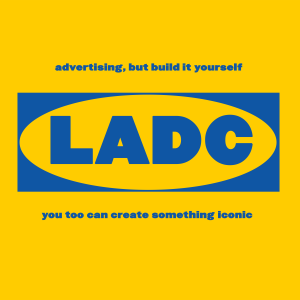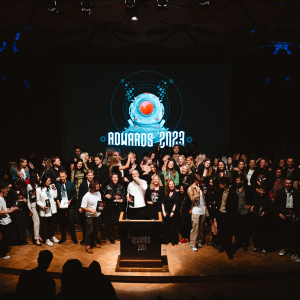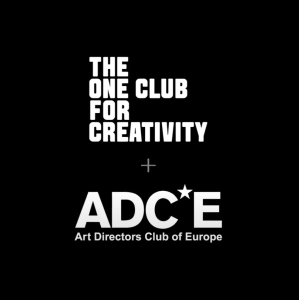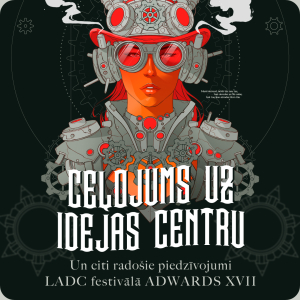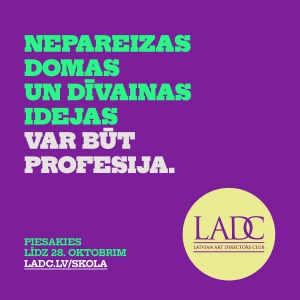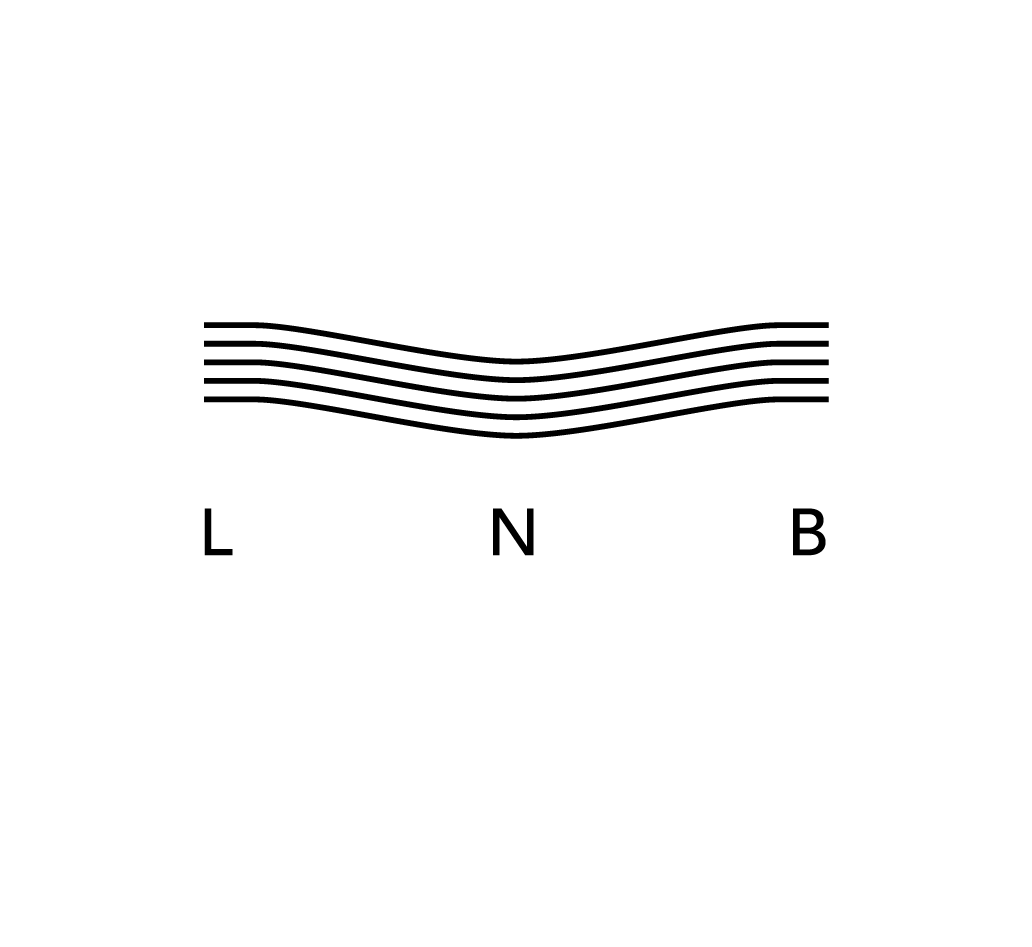Levan Lepsveridze: The Era of Bullshit is over17-03-2020
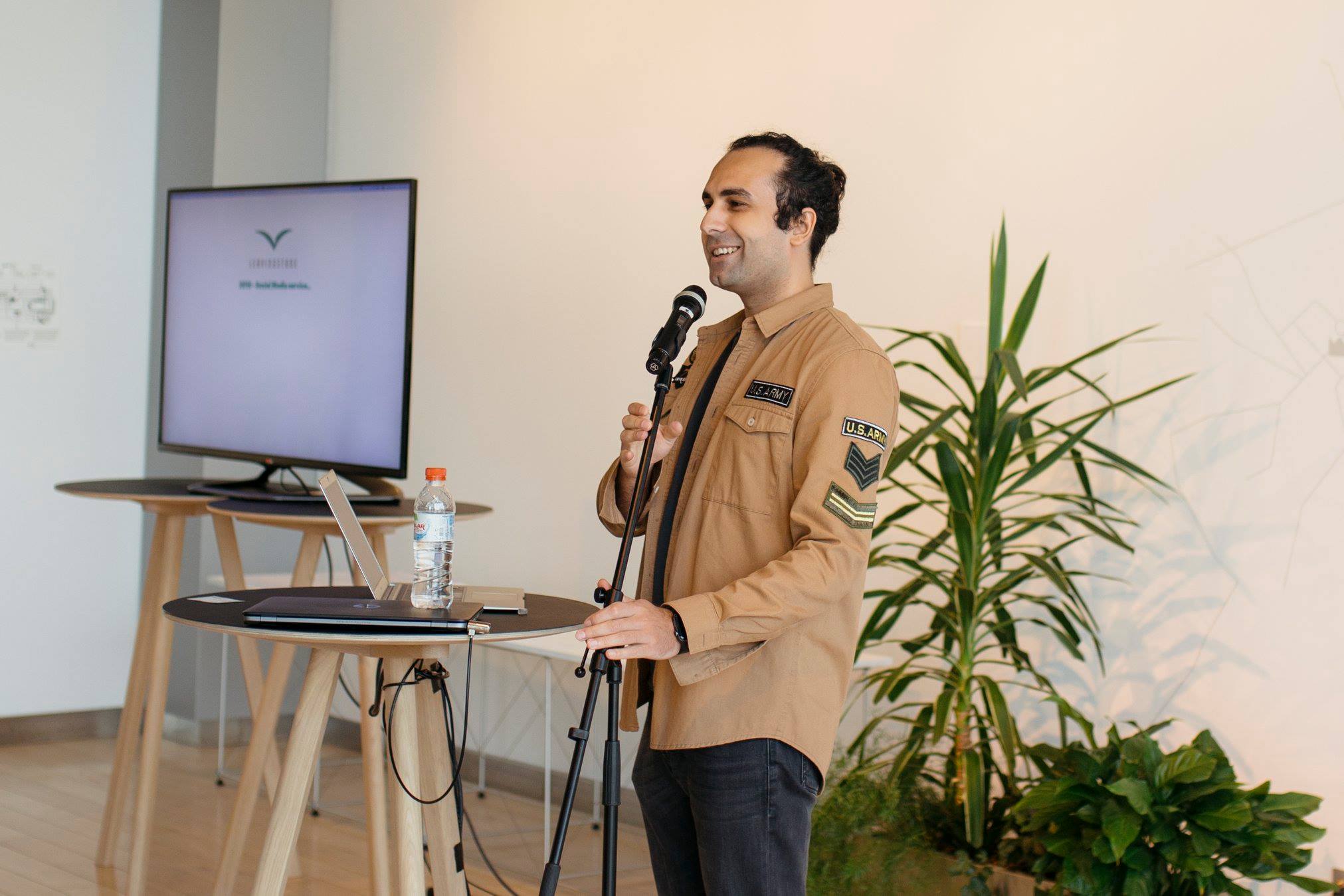
Ahead of the Latvia's creativity festival ADWARDS MMXX, Levan Lepsveridze – Co-founder and Creative Chairman of Georgian Creative Digital agency Leavingstone – shares his insights, experience, and thoughts about the advertising industry in an exclusive interview for Latvian Art Directors Club. What is creativity? How can an ad agency survive in a small country? How to deliver high-quality work again and again? And how to stay honest with your work, clients and yourself?
In less than 10 years Leavigstone has earned two Cannes Lions and many other awards like Eurobest, London International Award, ADCE, Epica, Golden Drum, Golden Hammer Grand Prix, KIAF Grand Prix, and others, resulting in one of the most acclaimed agencies in its region.
Reinventing creativity
Georgian advertising as we know it today started to form around 10 years ago, when the new independent agencies started to think about international exposure, international quality work and international awards. Before there was no big international exposure. So 10 years ago some agencies, including Leavingstone, started to think globally, and how this industry works, what is the role of creativity in business.
Latvia and Georgia have some similarities – both are small countries with a Soviet past and a short history of advertising, both consider their markets as small. We say that a small market is a problem, but I think that in our case the problem can be used as an opportunity. So to become big and successful, we need to do something more, to go outside and get some attention from international clients. We have to make campaigns that are not similar to the ones created for big markets. We need to invent a new kind of creativity and we need to be creative in terms of small budgets and short deadlines. And I am sure there are a lot of ways to reinvent creativity under such circumstances.
Leavingstone has got two Cannes Lions and some other awards, but I would say that there are other parts of being successful in business. Maybe the reason why Georgian independent agencies are more awarded than Latvian agencies is that we actually are independent. We have never been taught the classical high-quality approaches to the agency work which is good for the big markets. So we have been inventing our ways to be creative in this, let's say, shitty situation.
But having the support of the international agency network is, of course, giving some advantages, too. For example, I feel that some Latvian agencies do better regarding organizational and management things more than we in Georgia.
Joining forces
Not so long ago it was pretty okay for clients to ask for work without paying. It was a situation where sometimes we were delivering 10 or even 15 ideas that were not discussed properly, not so polished and not as well presented as it should be, because it was free and they wanted everything in one day.
Then around 3 or 4 years ago Georgian agencies established “Association of Communication Agencies of Georgia”. When we sat around the table at our first memorandum, the first decision was to say “No” to free pitches. Delivering high quality ideas takes time and time is money, so we decided that we have to be much more professional and ask for both. And that was very helpful! Of course, it's not money making or profitable thing, it's just the minimum amount of money for delivering quality.
At first there were some complaints from clients, but within time everyone understood that the quality went up. The delivery of presentations was much better and much more insightful, with all details and budget. Clients were very happy about the effect this decision had. At least I am confident it was the case with Leavingstone. So in Georgian advertising business we help each other. We're a small country and we need to exchange information and insights, otherwise we're not going to grow.
Maybe some small agencies still deliver low-quality ideas created in a short period, but overall clients understood that they should work with agencies that care about the brand's reputation, goals and the impact of the campaigns. We are pretty different from all the industry – we're not assholes, we're not arrogant guys who think only about money. We are driven by innovation and creativity.
For example, recently Georgia had a political situation with Putin, so he closed all the flights and urged Russians not to go to Georgia anymore, so Georgians started to think about ways to attract new tourists.
Creative agencies gathered together by an initiative from DDB BetterFly and built a platform like Airbnb, saying that we will host foreign freelancers and digital nomads in need of a desk, good atmosphere and nice people around. It's like a coworking space but for free! People can enter the web page, choose the agency they like and get a free desk there. It's cool, there's a lot of new connections and, of course, everyone prefers to work in an agency instead of coworking space alone. It's a beautiful project and people are coming. I'm sure it will drive the energy for new initiatives.
Chemistry with the client
I have spent years of research and learning, seeking information and reading books, trying to learn the recipe for approaching the clients the right way. And I was very determined to get answers. Then I understood that the only answer and the only right approach is to be yourself. Not to try to use someone else's techniques or someone else's presentation form, no. You just have to have your mindset and to be honest and open to people and opportunities.
We at Leavingstone often have the situation when potential clients turn to us, pointing at our awarded work and saying, “We need something like this!” And it is good because this is gravity Leavingstone was always dreaming of – clients come to us because we've done The Great work. But they need some kind of explanation that we won't repeat the exact idea again and will come up with a unique solution corresponding to the needs of their brand. And that usually leads to a happy ending that suits the client's needs even better.
But sometimes it is okay to recognize that some clients are not right for you and you are not the right agency for them. Even if the client is ready to pay a fair amount of money for your work, there can be cases when your kind of mindset won't benefit their business and vice versa. So it's all about being honest, direct and sometimes even harsh by pointing out some of the mistakes that have been made and should be improved. Because both the agency and the client should be aiming to solve the problem client has. If there is no chemistry, if you can't see sparkles in the client's eyes or the client can't see any in yours, it just won't work.
Good work first. Prizes after.
My opinion is that festivals and any kind of appearance in the industry are very helpful. But we have to be very careful with this topic, because sometimes people think that getting prizes is a definition of being successful. But no. Awards are the result of good work. The impressive work, the work that is inspiring, creative and impactful and has helped the business grow!
Having this kind of work in the portfolio means people are sharing it, bloggers and journalists are writing about it, and it's because people are inspired by the work. So I believe that the most important thing is to do a really good job. The awards are just additional stuff that comes because of it.
In my 10 years' experience in advertising, there have been some clients who are impressed by our amount of prizes, but they need to see what we can do for them. If they don't like the work, even ten thousand Cannes Lions won't help to have a common understanding between each other. So it's not The Lion that brings success, but the work and the mindset agency has.
Discovering a new animal
In the LADC lecture I was touching the topic about confidence. I believe that when you have a really innovative idea or a thought... and just to be clear I don't mean creative, I mean innovative – something completely new, that no one has ever seen before, that has no references... It is almost like discovering a completely new “animal”. And, of course, you are not confident about the idea because you've never seen this “animal” before, you've never thought about it, and other people haven't thought about it either. And when you are describing this kind of idea – it is impossible to be confident and 100 % sure it will work. So the only thing you need is trust. Trust from your colleagues, trust from your partners and trust from clients to believe in your vision. Trust to take the risk and to try to make this new idea possible.
I believe that being 100 % sure is a business consultants' thing. You know, looking confident and super-smart in their suits and golden watches, always saying true things… They can have this kind of confidence just because they have been doing the same thing 100 times and will keep on repeating, and repeating, and repeating. But when we are talking about creative approach, innovative ideas, a vision that is unique, it is ok to not to be as confident as the ones in suits and golden watches. It is okay to just be the guy with the idea that needs support and trust.
But by that, I don't mean that being unprofessional is okay. It is not professional to say, “Guys, I'm going this direction, follow me.” You should always be professional and you should always have an understanding of risks, the costs of the risks, and what you will do in case things go wrong. Always. You need to explain every step [to the client], you need to point out the parts you are not confident about. You need to have some kind of vision and plan B or plan C, in order to make others believe that you care and that is not just arrogant and egoistic vision of yours.
When partners and clients are seeing that you are not just a stupid guy with a crazy idea – that you've actually thought about all of the options and that you believe in it – they will consider it is worth trying.
The era of bullshit is over
Not so long ago advertising was built around fictional stories. But I believe that the era of fictional marketing is over!
This kind of approach doesn't work anymore because times have changed. Today we have social media as a platform and environment where we see real stories that are all about real things happening in the lives of our friends, family and our circle of acquaintances. And the content brands are creating should also be real thing because that is what people expect.
I would find it much more believable and effective if, for example, the brand with a slogan “We're making everything red” would actually paint one of the city streets red and would share a documentary material on the media rather than a fictional story, shot in the studio, and make a beautiful video out of it.
When the brand is doing a real thing, the content becomes more shareable and has viral potential. Journalists and bloggers are more willing to write about real stories, humans are driven by real stories. This is how social media works.
Also, in my opinion, people's intuition and ability to relate to real stories are underrated now. We haven't paid enough attention to these skills. We know that these skills exist but we can't explain it scientifically, we can not measure it and prove how it works. But it's there! And I believe that people feel when you are bullshiting them. They feel you've spent less time on them. They will feel it with the intuition I am talking about. So every brand needs to give a heart to the brand's audience. Because when the audience feels that there is heart and energy spent on them, they will give back their love.
So my advice is always to be 100 % real.
Filling head like a box
There are some things that can help to improve the workflow and creativity in the agency.
I'm always pushing my creative team to watch everything that's out there. To follow everything that's happening in advertising – every-award winning campaign, every shortlist of campaigns – and to discuss it, to know it.
But staying out of the advertising box is equally important! To think creatively our brain and mind need to learn something new every day, something that we have never heard before. We need to get inspiration from other industries – on the creative solutions of businesses, have a look into psychology or sociology world to understand how people think and behave. Watch movies that wouldn't be our first choice. Korean movies, for example. Read books from completely different industries. Go to a new place or museum. Talk with people with different opinions about life and political views. Get inspiration out of your everyday bubble.
Once you have this information in your head you can come up with good ideas. As Steve Jobs said, “Creativity is just connecting things.” I believe that our mind is a box that we need to fill with information, shake it up and then some good ideas will come out. So I'm always pushing myself and my team to search for references when studying the brief and, most importantly, come up with a unique idea. I hate it when people are making campaigns repeating the exact same idea as in the reference. That is shameful and that is not progress. Sure, every idea is a combination of some parts that you have already seen, but it shouldn't be copy-paste.
Of course, just as every other human, I also have this kind of periods when I am not satisfied with my thoughts and ideas. But I always try to think that it will pass. Maybe a rest, or a good sleep, or a day off is all you need and everything will be okay again. My personal ritual, in search of creativity, is to be alone, in the separation from others and to listen to my thoughts. Go to the seaside or the lakeside and to sit down and see the water. Or just to sit in a separate room alone and write things down. It somehow helps me listen to my thoughts. That's how it works in my case.
Creatives – problem solvers
Not so long ago we had no education providing skills for the advertising industry. Now we have one or two universities offering a wide range of education – design, art direction, communication studies. But it's still not enough.
That is the main reason why all the agencies [in Georgia] constantly search for new people in other industries. And we, at Leavingstone, believe that creativity isn't something that belongs only on the canvas, in a video, or on a poster. Creativity is something that helps to solve business problems, and the problems people are having. So people who we are looking for, have to be good thinkers – people who understand how the world works, how the economy works and how people live. And that is why we are hunting talented students and graduates from business schools and other industries. Our creative director, for example, is one of the greatest Georgian writers. And there are also some musicians [on our team], who play in bands.
Our main goal is to find people who are somehow reasonable. Even if that means just writing unique content on social media that have thousands of people's likes. That means the person really understands how things work, how society reacts to jokes.
So we don't look at CV or grades, or diploma, or anything. At the end of the day, chemistry and common sense are what counts.
When I was younger I was feeling that my vision was different from other people or other professionals, and I thought that it was something wrong. Now I understand that it is a privilege to have a unique way of thinking.
I would love to say to young creatives and if I only had the chance – to my younger self – you should always listen to your heart and your thoughts, not the thoughts of other people. Really! You don't have to be afraid of being different and have a different approach to life! Don't be like others. Don't be systematic. Because system kills. And creativity lives.
Interviewed for LADC by Klinta Verbele & Nadīne Plinta
